People say that a picture is worth a thousand words. A single picture can say more about the world than an entire article. This has been the mantra for years of photojournalists who used it to express their faith in the power of photography. To paraphrase the saying, a single brief sentence spoken by an interesting person – be it a leader, politician or business owner – can inspire more reflection than an entire book by a mediocre author. A concise opinion that is nevertheless wise and insightful may bring home to us in an instant an understanding of how the world generally and the world of technology in particular works. Which is why I have chosen a few quotes by famous people that have left a mark on me. The quotes cover a wide range of topical issues, even though some are only a couple of lines long.
Quote #1
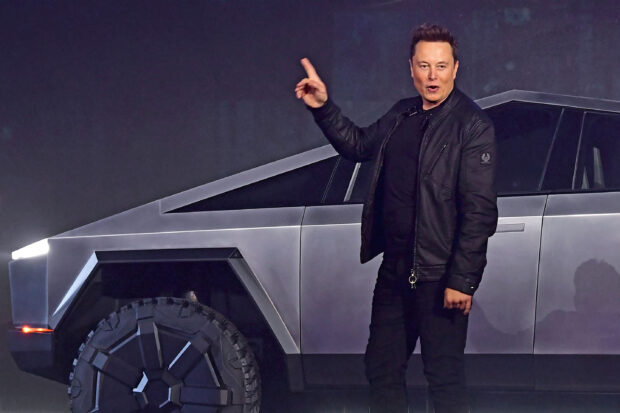
“We’re already cyborgs. Your phone and your computer are extensions of you, but the interface is through finger movements or speech, which are very slow.” By Elon Musk
With such firm views on our existential status, it was only a matter of time before Elon Musk came up with the idea of starting a company that would explore the possibility of hooking the human brain up to a computer. That company, named Neuralink, is already in operation. Its founder promises groundbreaking advances, such as the ability to control artificial limbs with impulses sent directly from the brain. I share his belief in the progress being made in the cyborgization of humans and that smartphones have become part of ourselves. Since we can’t live without them, why not implant them into our bodies? Is technology inserted under the human skin really more terrifying than the kind that rests in our hand for hours every day?
Quote #2

“The advance of technology is based on making it fit in so that you don’t really even notice it, so it’s part of everyday life.” By Bill Gates
On closer examination, this simple and even self-evident observation packs a lot of insights. The advent of the computer and then the PC was a major leap forward in the history of technology. Isn’t it true though that the real breakthrough with truly huge implications for our entire civilization, whether in technology, our way of life or communications, didn’t come about until the invention of the smartphone? While the device holds no special magic for us anymore, it can do things that many old-type PCs couldn’t deliver. Today’s smartphones offer impressive multifunctionality, ease of use and an almost unlimited capability to support a wide range of apps. They have become ordinary and almost unnoticeable, blending perfectly into the background of our lives. They have also brought technology closer to us than any other digital device in history. This is what real technological progress, as described by Bill Gates, is all about.
Quote #3
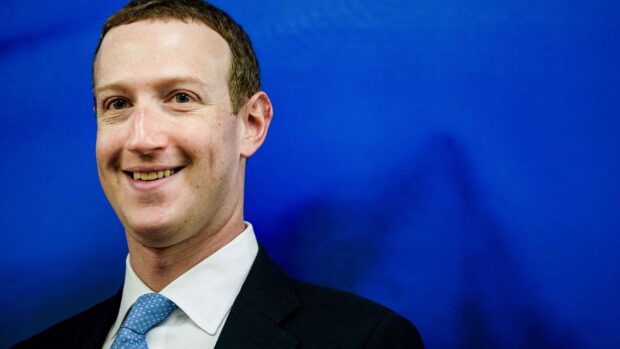
“We’re at a point now where we’ve built AI tools to detect when terrorists are trying to spread content, and 99 percent of the terrorist content that we take down, our systems flag before any human sees them or flags them for us.” By Mark Zuckerberg
AI is said to have been used in preparations for finding and killing Osama Bin Laden. One could give Facebook the benefit of the doubt and give credence to its claim to have neutralized terrorist activities on its site. That is fine but how exactly can we, regular users, check whether it is true? And even if it is, why is Mark Zuckerberg so selective in taking down malicious messages and users? No to terrorists but yes to political disinformation? Does anyone really know what content is removed from social networks and how many interesting opinions never reach wider audiences? Who are the “web cleaners” tasked with removing content that promotes hatred, pornography and violence? Or rather, who are their employers and what rules do they go by? The black box syndrome is a fact of life – we do not know how the algorithms that choose the content displayed to us really work. Add to this the fact that technology is increasingly politicized and you will get the whole picture of the chaotic world of values and processes in the digital realm.
Quote #4
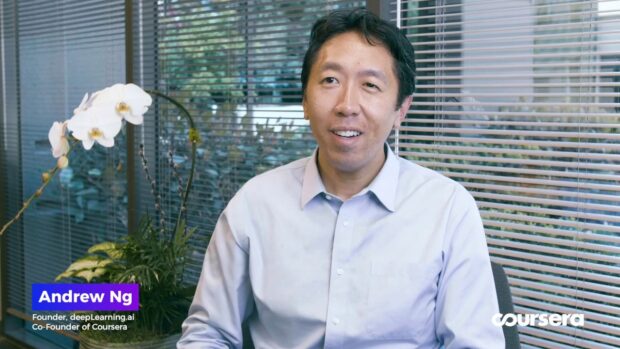
“Just as the Industrial Revolution freed up a lot of humanity from physical drudgery I think AI has the potential to free up humanity from a lot of the mental drudgery”. By Andrew Ng
Andrew Ng, who works for Google Brain, Badoo and a host of other companies, is one of the biggest optimists regarding the impact of technology on our lives. He uses every opportunity to spread his confidence in progress and a brighter future. According to Ng, AI technology offers the promise of a better life, a more efficient brain, a stronger psyche and better-organized societies. It is a breakthrough far greater than the industrial revolution. One would be hard pressed to find another person or set of views that could match his optimism about technology, civilization and the potential of the human mind. The uniqueness and intellectual implications of his approach make his views fascinating.
Quote #5
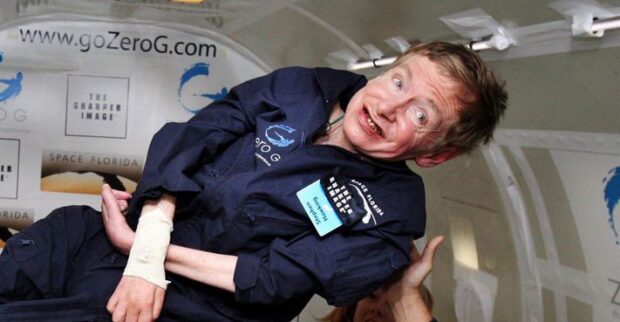
“Success in creating AI would be the biggest event in human history. Unfortunately, it might also be the last, unless we learn how to avoid the risks.” By Stephen Hawking
The above brief quote by one of the most famous physicists of recent decades shows a keen awareness of the breakthrough we are witnessing mixed with sober concern. Hawking never questioned the potential of smart technologies to benefit humanity in many ways but warned against losing control over them. What risk avoidance is Hawking referring to in his quote? Is it possible to limit the human drive to develop technology? Shouldn’t people be free to try and test their ideas as they see fit? It seems that from one year to the next, we transcend successive boundaries both in the use of technology in everyday life and in approving further experiments in genetics, biotechnology, military applications and further aspirations of transhumanistically-minded researchers. International institutions and other leadership bodies alike warn of possible risks. Will we be able to separate our pursuits into the ones that are acceptable and the ones we should ban? Creating a global movement with a common, ethical denominator is a huge challenge.
. . .
Works cited:
Vanity Fair, MAUREEN DOWD, ELON MUSK’S BILLION-DOLLAR CRUSADE TO STOP THE A.I. APOCALYPSE, Link, 2017.
BBC, James Manyika, Exclusive Bill Gates interview, Link, 2018.
Recode, Kara Swisher, Zuckerberg: The Recode interview, Everything was on the table — and after Facebook’s wildest year yet, that’s a really big table, Link, 2018.
Think Automation, A lighter side to AI: positive artificial intelligence quotes, Link, 2018.
Independent, Stephen Hawking, Stuart Russell, Max Tegmark, Frank Wilczek, Stephen Hawking: ‘Transcendence looks at the implications of artificial intelligence – but are we taking AI seriously enough?’ Success in creating AI would be the biggest event in human history. Unfortunately, it might also be the last, unless we learn how to avoid the risks, says a group of leading scientists, Link, 2017.
. . .
Related articles:
– Algorithms born of our prejudices
– How to regulate artificial intelligence?
– Will AI save the labor market?
– Artificial Intelligence is an efficient banker
– Will algorithms commit war crimes?




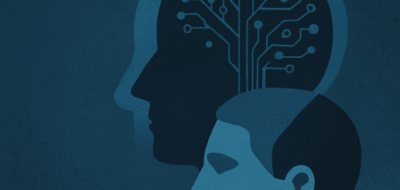





TomK
All are indeed great Quotes. Specifically, I want to appreciate the order you have kept them in. The last one leaves you with some deeper thoughts.
TomK
rightful selection
Zoeba Jones
Here’s the Newsweek article talking about the internet and “why it will fail.”
Nevertheless, here are more quotes similar to that for your perusal and wonder:
1876: “The Americans have need of the telephone, but we do not. We have plenty of messenger boys.” — William Preece, British Post Office.
1876: “This ‘telephone’ has too many shortcomings to be seriously considered as a means of communication.” — William Orton, President of Western Union.
1889: “Fooling around with alternating current (AC) is just a waste of time. Nobody will use it, ever.” — Thomas Edison
1903: “The horse is here to stay but the automobile is only a novelty – a fad.” — President of the Michigan Savings Bank advising Henry Ford’s lawyer, Horace Rackham, not to invest in the Ford Motor Company.
1921: “The wireless music box has no imaginable commercial value. Who would pay for a message sent to no one in particular?”
1946: “Television won’t be able to hold on to any market it captures after the first six months. People will soon get tired of staring at a plywood box every night.” — Darryl Zanuck, 20th Century Fox.
1955: “Nuclear powered vacuum cleaners will probably be a reality within 10 years.” — Alex Lewyt, President of the Lewyt Vacuum Cleaner Company.
1959: “Before man reaches the moon, your mail will be delivered within hours from New York to Australia by guided missiles. We stand on the threshold of rocket mail.” — Arthur Summerfield, U.S. Postmaster General.
1961: “There is practically no chance communications space satellites will be used to provide better telephone, telegraph, television or radio service inside the United States.” — T.A.M. Craven, Federal Communications Commission (FCC) commissioner.
1966: “Remote shopping, while entirely feasible, will flop.” — Time Magazine.
1981: “Cellular phones will absolutely not replace local wire systems.” — Marty Cooper, inventor.
1995: “I predict the Internet will soon go spectacularly supernova and in 1996 catastrophically collapse.” — Robert Metcalfe, founder of 3Com.
2005: “There’s just not that many videos I want to watch.” — Steve Chen, CTO and co-founder of YouTube expressing concerns about his company’s long term viability.
2006: “Everyone’s always asking me when Apple will come out with a cell phone. My answer is, ‘Probably never.'” — David Pogue, The New York Times.
2007: “There’s no chance that the iPhone is going to get any significant market share.” — Steve Ballmer, Microsoft CEO